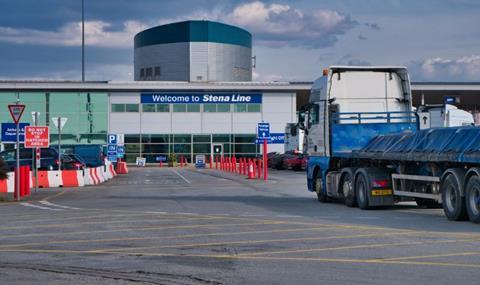
The port of Liverpool is “uniquely positioned” to overcome major Brexit delays at Dover and should be seen as the exit point of choice for hauliers, according to its owner.
Peel Ports was responding to warnings that there could be queues of up to 7,000 HGVs in Kent at the end of the transition period unless the industry gets its paperwork in order.
It said the country was too reliant on a handful of pinch points in the South East and the recent announcement by cabinet office minister Michael Gove demonstrated the risks of this strategy.
Stephen Carr, Peel Ports group commercial director, said: “We have been preparing rigorously for many months and have invested heavily at our Liverpool, Heysham and Sheerness ports to ensure they have the capacity to accommodate cargo switch routes and modes.
“All three ports have already taken steps to improve resilience ahead of Brexit, with increased throughput capacity for HGV trailers, containers and storage to support smooth operations by RORO ferries and other shipping services.”
Shipping line CLdN recently commenced ferry routes to Spain and Portugal from Liverpool port and Carr said the ports industry would relieve pressure on traditional routes, increase capacity and introduce new trade routes.
He said: “Potential delays and hold-ups post-Brexit underline the advantage of using ports closest to the origin or destination of goods.
“The Port of Liverpool is uniquely positioned to offer this proximity to market, which allows goods to reach their end destination more reliably and with less reliance on increasingly scarce truck drivers.
“This is a need which has never been more critical considering the changes in demand patterns we’ve seen this year, with added pressure of anticipated queues at Dover and long onward journeys from the south to the north of the country.”
He added that shipping’s relatively low carbon emissions when measured on a per tonne/km basis offered environmental benefits too.
The industry criticised Gove’s comments and asked how it was supposed to prepare when the government had provided no clarity as to what they needed to do.
Meanwhile, Felixstowe port said measures it has introduced to manage the flow of containers through the terminal were having “a positive impact”.
The UK’s largest container terminal apologised for disruption to hauliers after surging import volumes, empty containers and Covid-19 led to long delays.
In a statement, it said its container yard remained at a high density and that it had released more than 1,600 additional VBS slots and extended Sunday opening hours to try and give hauliers additional access.














